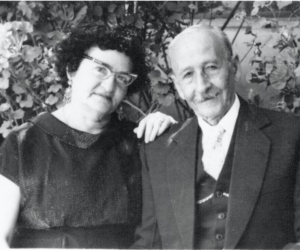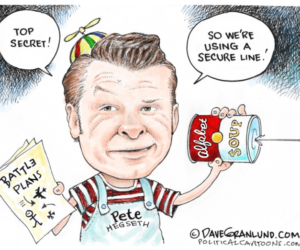So liberals may not be ruling talk radio.
But a new poll suggests they are making big inroads among another important force: young people.
And the poll shows that at least some of this is a backlash against the presidency of President George Bush:
Young Americans are more likely than the general public to favor a government-run universal health care insurance system, an open-door policy on immigration and the legalization of gay marriage, according to a New York Times/CBS News/MTV poll. The poll also found that they are more likely to say the war in Iraq is heading to a successful conclusion.
In a snapshot of a group whose energy and idealism have always been as alluring to politicians as its scattered focus and shifting interests have been frustrating, the poll found that substantially more Americans between the ages of 17 and 29 than four years ago are paying attention to the presidential race. But they appeared to be really familiar with only two of the candidates, Senators Barack Obama and Hillary Rodham Clinton, both Democrats.
They have continued a long-term drift away from the Republican Party, and although they are just as worried as the general population about the outlook for the country and think their generation is likely to be worse off than that of their parents, they retain a belief that their votes can make a difference, the poll found.
Every pivotal (versus the more caretaker) Presidency has some kind of an impact on the formative generation that lived through it. And Bush’s has, too. But if the trend continues, the GOP has some reason for long-term concern:
More than half of Americans between 17 and 29 years old — 54 percent — say they intend to vote for a Democrat for president in 2008. They share with the public at large a negative view of President Bush, who has a 28 percent approval rating with this group, and of the Republican Party. They hold a markedly more positive view of Democrats than they do of Republicans.
Among this age group, Mr. Bush’s job approval rating after the attacks of Sept. 11, 2001, was more than 8 in 10. Over the course of the next three years, it drifted downward leading into the presidential election of 2004, when 4 out of 10 members of young Americans said they approved how Mr. Bush was handling his job.
At a time when Democrats have made gains after years in which Republicans have dominated Washington, young Americans appear to lean slightly more to the left than the general population: 28 percent described themselves as liberal, compared with 20 percent of the nation at large. And 27 percent called themselves conservative, compared with 32 percent of the general public.
There’s more in the poll, so go to the link.
There are a couple of other factors that will be interesting to watch. How will perceptions, behavior and tone of young people be shaped growing up in a world with Ann Coulter, Rush Limbaugh, Michael Moore, Jon Stewart (and The Moderate Voice?)?
My DD’s Jonathan Singer, in yet another MUST READ POST that should be read in full writes, in part:
I’ve been trying to track the transformational potential of the Bush presidency — how the tenure of George W. Bush could change the electorate for decades to come to become significantly more Democratic — for some time. Back before the election, for instance, I pointed to the argument that once political and partisan leanings are enshrined in young voters, as they appeared to be doing last fall, they tend stay with that cohort for as long as that cohort stays in the electorate….
….It’s certainly true that political and ideological sentiments can change over time — and even quite rapidly. Along these lines, it’s quite possible that the Democrats will take steps that drastically undercut the good will they have gained among younger voters. Nonetheless, there is a real opportunity for the Democrats to tap into the power of the youth vote to achieve a lasting victory, not only this cycle but in elections to come. And the fact that this polling indicates that 58 percent of younger voters are paying attention to the campaign, up from 35 percent at the same point in the 2004 election cycle, indicates that the youth vote is indeed hankering to be tapped into.
Read it in its entirety.
A couple of things come to mind:
(1) Future controversies about vote counting and election results could be bigger since young people believe their votes make a difference. In that sense, this seems a bit reminiscent of the early 1960s where young people felt they could change the way the country worked and that segment of the young population that felt that way became bitterly disappointed as early 1960s idealism started to vanish due to wrenching events and various policies.
(2) If the GOP is facing a problem with young voters, this problem will be compounded if the party winds up being damaged by whatever the outcome turns out to be in the immigration reform battle. If you have young voters who want to vote and Hispanic voters who are angry and want to vote (or former members of the Republican base who are angry and want to vote) you have a major challenge.
(3) Over the years there have been many stories, polls, etc about young voters but in the end the youth vote has seldom lived up to its described potential. Will it be different in the 21st Century?
Joe Gandelman is a former fulltime journalist who freelanced in India, Spain, Bangladesh and Cypress writing for publications such as the Christian Science Monitor and Newsweek. He also did radio reports from Madrid for NPR’s All Things Considered. He has worked on two U.S. newspapers and quit the news biz in 1990 to go into entertainment. He also has written for The Week and several online publications, did a column for Cagle Cartoons Syndicate and has appeared on CNN.
















